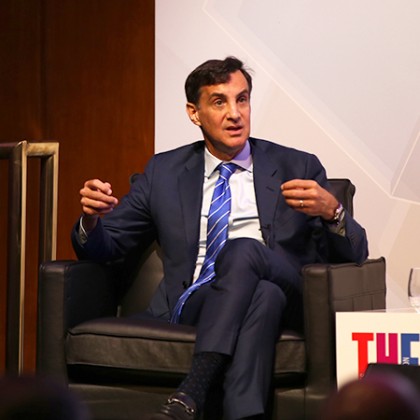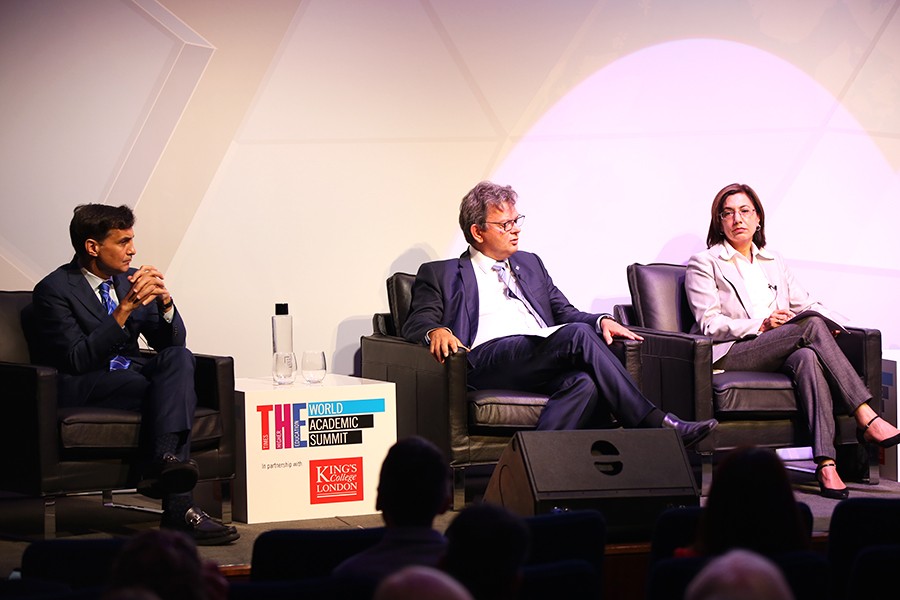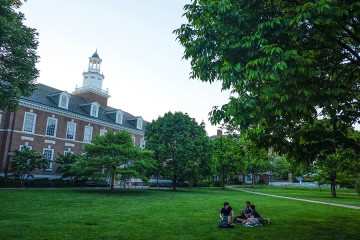Johns Hopkins University President Ronald J. Daniels was among a select group of university leaders who spoke about the relationships between cities and universities at the Times Higher Education World Academic Summit in London earlier this month.
Daniels was one of four panelists for a discussion titled "Cities and Universities: Mutual Dependency for Mutual Growth?" He spoke at length about how, in a world that is connected globally, universities also must make sure that they remain connected locally to the cities and communities in which they reside. Watch the complete panel discussion
"It may have been true historically that the research mission of the university gets played out in this globalsphere and that the local side is much more in the form of service delivery," Daniels said. "But I think actually that's been upended very dramatically over the last several decades."

Image caption: Johns Hopkins University President Ronald J. Daniels speaks at the Times Higher Education World Academic Summit in London.
Daniels cited two recent examples in which Johns Hopkins has applied its research expertise close to home through cross-disciplinary projects.
One involved a collaboration in which an algorithm developed by a Hopkins astrophysicist to predict solar flares was adjusted to predict areas of urban blight in Baltimore. The second was the Vision for Baltimore program, which provides free vision exams and free eyeglasses for all pre-kindergarteners to eighth-graders in Baltimore City public schools. The program is underpinned by a study that found significant improvements in the reading skills of students who needed and received glasses.
"There's just a multiplicity of examples where we're taking very rigorous research approaches to the problems of the city and finding lots of fertile ground for using ideas, methodologies, techniques to help the city," Daniels said.
Daniels also spoke about the university's efforts to transform the neighborhoods surrounding its Homewood and East Baltimore campuses, technology transfer programs designed to bring jobs to Baltimore, and economic inclusion efforts including HopkinsLocal.
He was joined on the panel by Sir Anton Muscatelli, principal and vice-chancellor at the University of Glasgow in Scotland; Cheryl de la Rey, vice-chancellor and principal at the University of Pretoria in Australia; and Chorh Chuan Tan, president of the National University of Singapore.
The 2017 World Academic Summit, which brought together senior higher education, government, and industry leaders from 52 countries to discuss and confront pressing challenges, was held Sept. 3-5 at Kings College London.
Posted in University News, News+Info
Tagged president ron daniels









